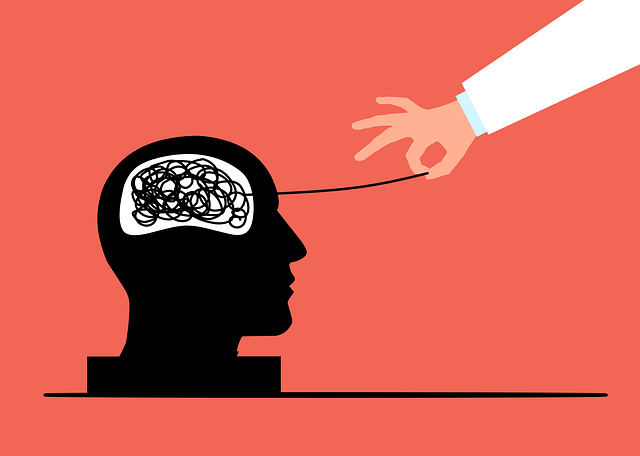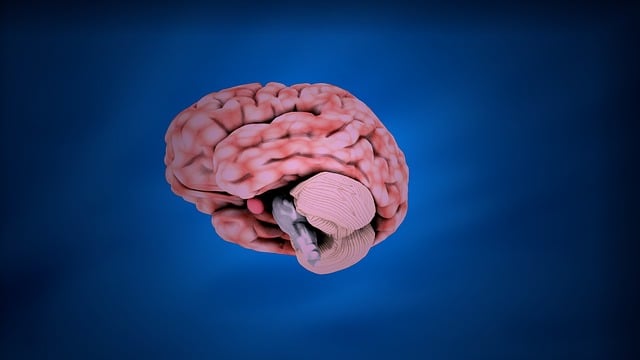Westminster Eating Disorders Therapy distinguishes itself through its culturally competent approach, addressing the globalized healthcare landscape's need for diversity. By recognizing and overcoming unconscious biases, their program offers tailored treatment plans that respect diverse cultural contexts on body image, food, and mental wellness. Through mindfulness meditation, multicultural therapy exercises, and sensitive conflict resolution, they foster a supportive environment promoting self-acceptance and recovery. Continuous training with interactive workshops, role-playing scenarios, and case studies, coupled with burnout prevention strategies and community outreach, ensures their professionals provide compassionate, inclusive care tailored to diverse backgrounds, ultimately enhancing treatment outcomes.
Cultural competency is an essential skill set for healthcare providers, especially in diverse societies like ours. This article explores this critical aspect of patient care through various lenses. We delve into understanding cultural competency in healthcare and its impact on eating disorder treatment, highlighting cases like Westminster Eating Disorders Therapy where diverse perspectives foster effective care. Additionally, we discuss training approaches to enhance cultural awareness and measure the success of programs aimed at improving cultural competency, offering valuable insights for professionals.
- Understanding Cultural Competency in Healthcare: A Necessary Skill Set for All Providers
- The Impact of Cultural Biases and Stereotypes on Eating Disorder Treatment
- Westminster Eating Disorders Therapy: Incorporating Diverse Perspectives
- Training Approaches to Enhance Cultural Awareness in Mental Health Care
- Measuring Success: Evaluating the Effectiveness of Cultural Competency Programs
Understanding Cultural Competency in Healthcare: A Necessary Skill Set for All Providers

In today’s diverse and interconnected world, cultural competency has become an indispensable skill set within healthcare. It involves understanding and appreciating the unique cultural backgrounds, beliefs, and values of patients, fostering effective communication and care. For healthcare providers, especially those specializing in areas like eating disorders therapy at Westminster Eating Disorders Therapy, this means going beyond basic medical knowledge to navigate complex interpersonal dynamics.
Cultural sensitivity is crucial for building trust, ensuring patient comfort, and delivering holistic care. Empathy-building strategies play a pivotal role here, enabling providers to step into their patients’ shoes and comprehend their perspectives. Moreover, self-care routine development for better mental health is essential; providers must maintain their own cultural awareness and emotional well-being to offer consistent and compassionate care.
The Impact of Cultural Biases and Stereotypes on Eating Disorder Treatment

Cultural biases and stereotypes can significantly impact the treatment of eating disorders, often hindering effective care. Healthcare providers, especially in diverse communities like Westminster Eating Disorders Therapy, must recognize their own unconscious preconceptions and how they might influence patient interactions. For instance, certain cultural norms and beauty standards can lead to misdiagnosis or a delay in seeking help. Stereotypical views may also affect treatment plans, as one-size-fits-all approaches rarely work across diverse populations.
When patients from varied backgrounds experience these biases, it can disrupt the therapeutic process. Emotional healing processes might be hindered if caregivers fail to understand the unique challenges faced by individuals from different cultural settings. Mindfulness meditation and positive thinking, while beneficial tools, must be tailored to respect cultural contexts to ensure inclusivity and meaningful recovery journeys.
Westminster Eating Disorders Therapy: Incorporating Diverse Perspectives

Westminster Eating Disorders Therapy is a pioneering program that recognizes the importance of cultural competency in treating eating disorders. By incorporating diverse perspectives, they offer a unique approach that respects and embraces the backgrounds and experiences of their clients. This inclusive strategy ensures that individuals from various cultural and ethnic groups receive tailored care, addressing specific challenges related to their heritage.
The therapy program encourages professionals to explore different cultural views on body image, food, and mental wellness. For example, integrating mindfulness meditation and mental wellness journaling exercises guided by diverse therapists can help clients cultivate self-acceptance. Additionally, conflict resolution techniques taught within the framework of cultural sensitivity enable participants to navigate interpersonal dynamics with greater ease, fostering a supportive environment conducive to recovery.
Training Approaches to Enhance Cultural Awareness in Mental Health Care

Cultural awareness is a cornerstone of effective mental health care, especially in diverse communities like Westminster where Eating Disorders Therapy services are in high demand. Training approaches that go beyond basic cultural sensitivity in mental healthcare practice are crucial to ensure providers can offer compassionate and tailored support. Programs should incorporate interactive workshops, role-playing scenarios, and case studies reflecting various cultural backgrounds and experiences. This immersive learning fosters understanding of unconscious biases and promotes empathetic communication, essential for building trust with clients from diverse communities.
Beyond training, burnout prevention strategies for healthcare providers are integral to sustaining cultural competency. Overcoming workplace stress and fatigue enables professionals to remain attuned to the nuanced needs of their clients. Community outreach program implementation can also enhance cultural sensitivity by engaging with local communities, understanding their unique challenges, and tailoring services accordingly. By integrating these approaches, mental health care providers at Westminster Eating Disorders Therapy can offer more inclusive and effective treatment, contributing to better outcomes for all individuals seeking support.
Measuring Success: Evaluating the Effectiveness of Cultural Competency Programs

Measuring success in healthcare provider cultural competency training is paramount to ensuring its effectiveness and long-lasting impact on patient care. Evaluating these programs involves a multifaceted approach that goes beyond mere satisfaction surveys. Key metrics include changes in provider attitudes, knowledge, and behaviors related to diverse cultures and communities. This can be assessed through pre- and post-training assessments, focusing on specific areas like emotional intelligence and cultural sensitivity.
For instance, Westminster Eating Disorders Therapy has found success by incorporating self-care practices and mental health education programs designed with cultural competency in mind. By tracking provider responses and patient outcomes, they’ve demonstrated improvements in delivering care that respects individual cultural backgrounds and promotes inclusive environments. This data-driven approach ensures that training remains relevant and impactful, ultimately benefiting both healthcare providers and the diverse communities they serve.
Cultural competency training is a vital component of modern healthcare, especially in eating disorder treatment. As highlighted by Westminster Eating Disorders Therapy’s innovative approach, integrating diverse perspectives can significantly improve patient outcomes. Effective training programs, like those discussed, empower healthcare providers to recognize and overcome biases, ensuring every patient receives tailored, culturally sensitive care. By measuring the success of these initiatives, we can continue to enhance mental health services, fostering inclusive environments that support diverse communities.














